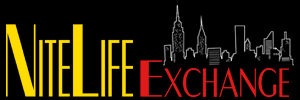
By Marilyn Lester***Making his trio debut at the Birdland Theater, Russ Kassoff quickly showed why he’s had a magnificent career as a jazz pianist and composer, not to mention as an arranger, conductor and orchestrator. More than that, anyone who’s heard him on his weekly “Jazz Deli” radio program (WFDU, 10 AM to Noon on Saturdays), can readily attest to his charm, wit and knowledge about all things jazz. With long-time musical cohorts, Jay Anderson on bass and Dennis Mackrel on the drums, the trio served up a delicious and generous portion of prime standards and Kassoff originals.
Just watching these three extraordinary musicians work together was a treat—a master class for aspiring jazz players on how to play completely in the pocket. Craft was enhanced with an almost psychic bond of knowing just when to weave in and out of solo spots—and generally lay down the notes to perfection. From the opener, a not-your-grandma’s “Yes Sir, That’s My Baby”—a 1925 vaudeville-style number written by Walter Donaldson and Gus Kahn—it was apparent that the evening was going to swing. The updated tune featured plenty of improvisation and freshness. Kassoff is not only an accomplished player full of creative ideas but adds fun to his improvs; he executes them in the same way the great Ella Fitzgerald scatted—with insertions of snippets of other melodies and recognizable riffs.

Kassoff is also a musician who appreciates melody, and how melody is executed in jazz to honor the basics of a tune, while also taking off into areas of creative embellishment. He rightly knows that the greatest standards in the American Songbook are those in which the melody and lyric have equal weight, and so, how important it is for players to know the lyrics of tunes they play. Legendary saxophonist Ben Webster is a perfect example. His work with Duke Ellington and others was masterful, but there was no other who could compare on a ballad because Webster insisted on playing the lyric as well as the melody. When Kassoff and company applied that truism to the sweet ballad, “Edelweiss” (Richard Rodgers, Oscar Hammerstein II), for instance, the result was beautifully majestic.
As a composer (who has worked with lyricists), his own tunes are soulful and easy on the ear. “Bird Fly By,” with its gentle samba arrangement was evocative of its title. His “It’s a Different Time Today” was played as a contemplative ballad, particularly showcasing Kasoff’s elegance as a player. His style is so laid back he makes it look easy, caressing the keys, yet his harmonics and chord progressions are sophisticated, which is why the final work is so compelling. Underscoring Kassoff’s mastery of precision and technique, was his stride-style solo execution of “Lady Be Good” (George and Ira Gershwin). Another special moment came with Paul Simon’s 1970, little-heard, “So Long, Frank Lloyd Wright,” true to the original’s bossa nova arrangement; the trio produced a sound so fluid it felt like floating along on a wave of happy melody.
The two sidemen, Anderson and Mackrel, are also masterful players whose style is perfectly attuned to Kasoff’s approach to the music. Bassists are theoretically the time-keepers of a jazz group, and while they can be creative on solo turns, aren’t necessarily known for carrying a melody. Anderson is probably an exception to the “rule,” with a deep sense of tunefulness. Nuance can be a drummer’s best friend in keeping rhythm anchored, and Mackrel has it in large quantity. His use of brushes on “Edelweiss” gave the number an exquisite depth of tone.
The riches of the eclectic set were many, with Kassoff a genial host. Had not the lights of Birdland needed to be turned off for the night, an appreciative and eager audience would have stayed for much more. Clearly, Russ Kassoff and company need to return soon for Part Two.









Leave a Reply